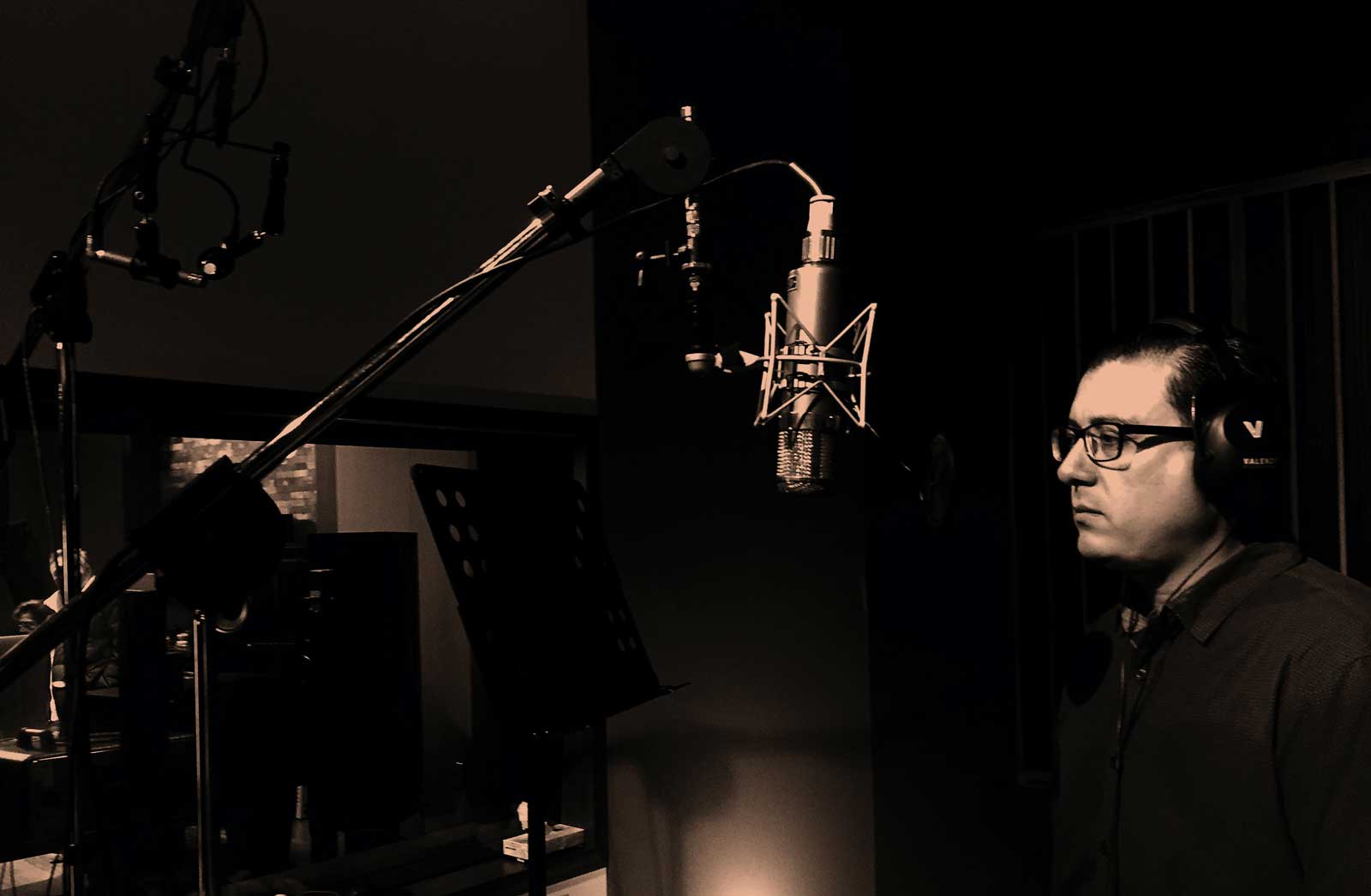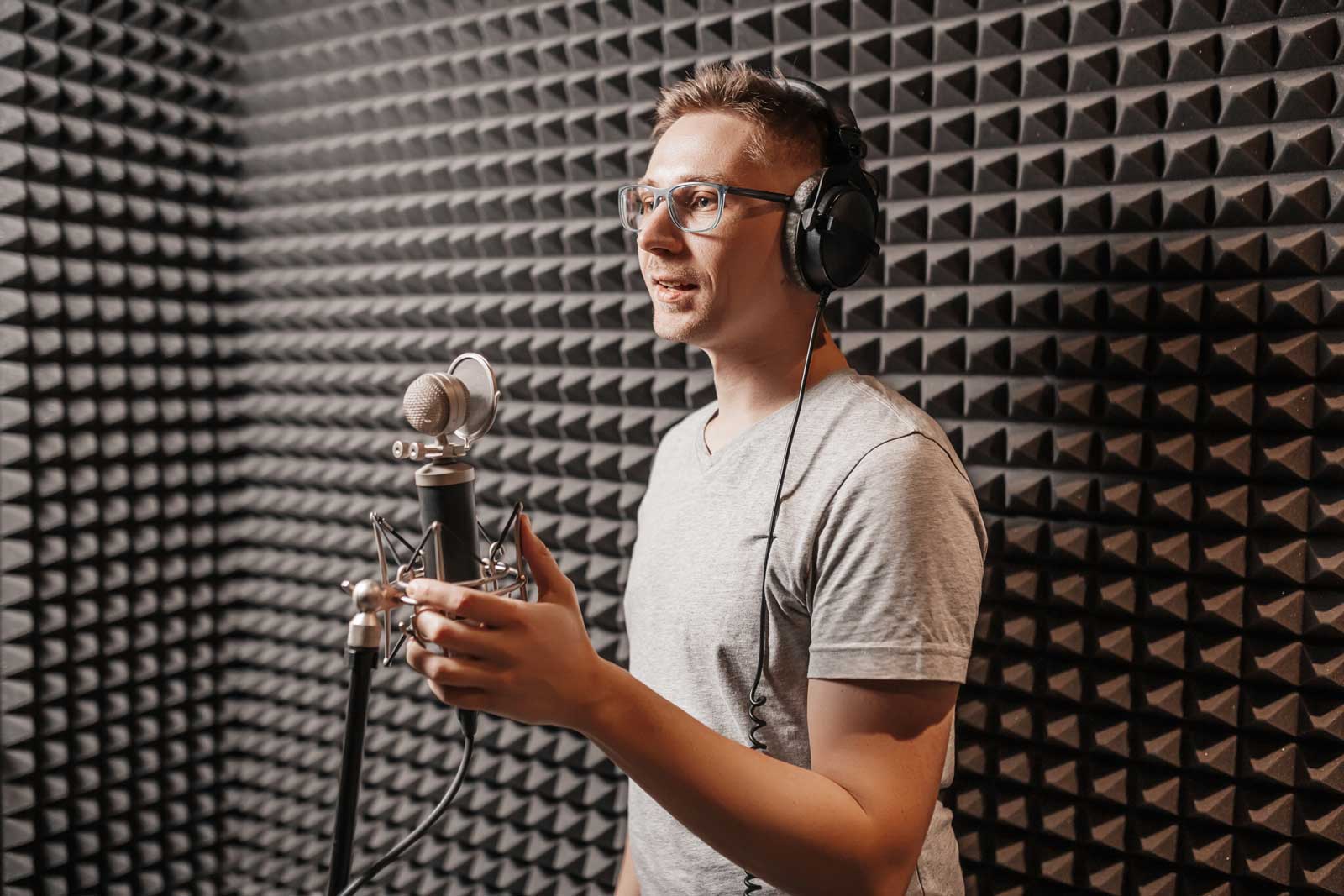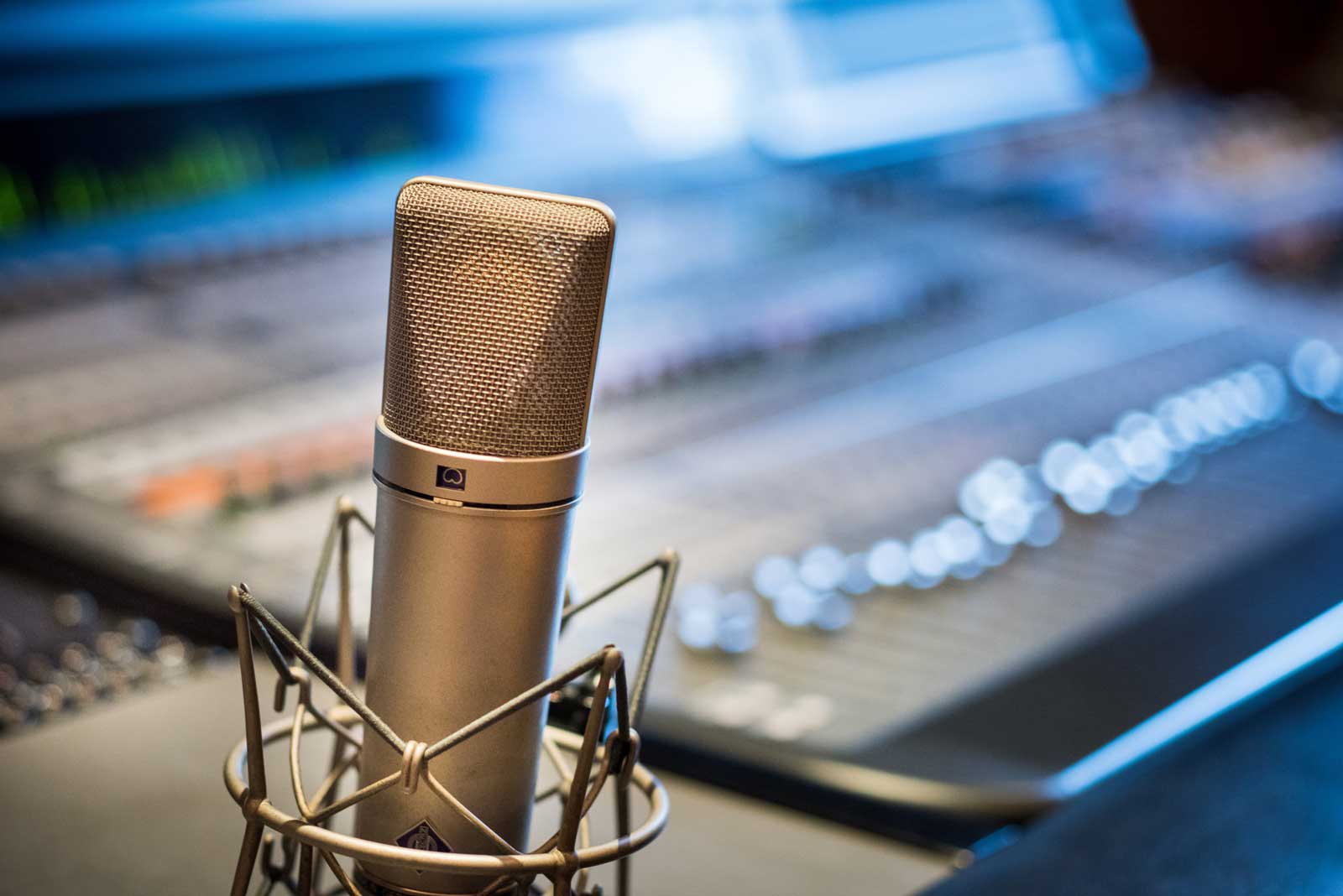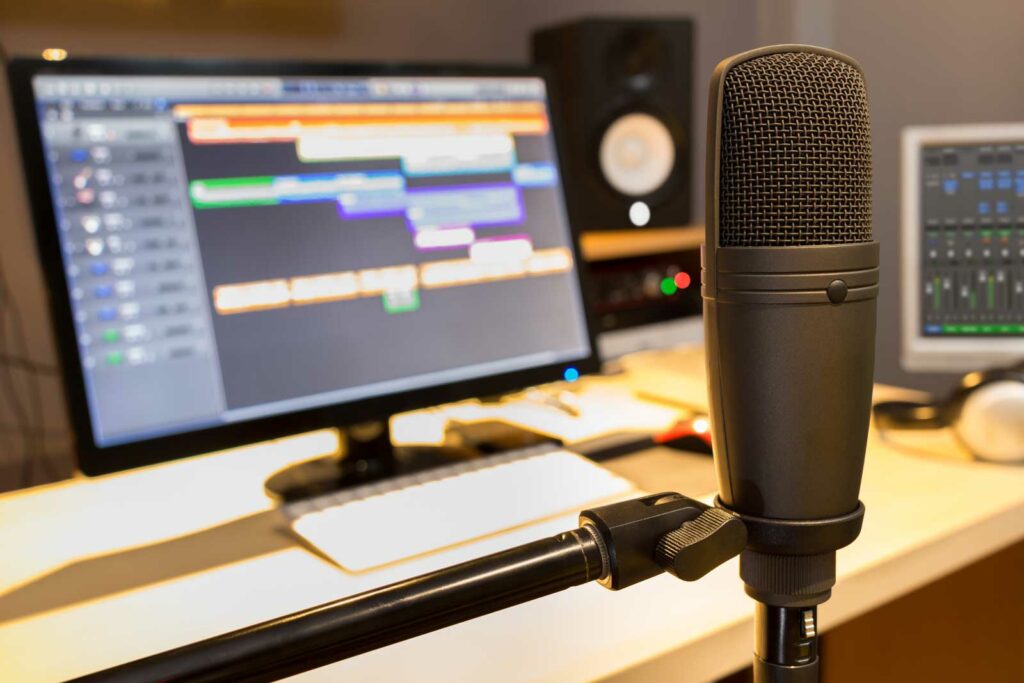Have you ever been told you’ve got an amazing voice? Have you heard it enough times to pique your curiosity about what’s involved?
With technology advancements, many people who never would have previously thought about it have found lucrative careers as voice actors and have been able to work from home and make a living without having to set foot in a studio.
Yes, many voice actors work from home. With the right equipment, a voice actor can create a home studio that is capable of producing high-quality audio recordings and earn a good living.
But does this mean that everyone can now become a successful voice actor working remotely?
In this blog post, we will explore whether you can indeed become a successful voice actor working from home, what the advantages and disadvantages of such an arrangement may be, and how you can get started. Read on to find out if this is really something that could work for you!
Real quick, before we get too far into it here, if you want to connect with other remote workers or would love to make your home office space the best join my free private Facebook group, Home Office Hacks here.
How is voice-over work recorded at home different than a professional studio?

Voice work recorded in a home studio can be different than voice work recorded in a professional studio in several ways that voice actors in the early stages of their career may not think about and it’s important to understand these things so that you know what the possibilities and limitations these kinds of issues present.
One key difference is the level of equipment and technology used. Professional studios are often equipped with state-of-the-art recording equipment and software, while home studios may have more basic equipment.
Additionally, professional studios are designed specifically for recording audio, with soundproofing and other features to ensure high-quality recordings. In contrast, home studios may not be optimized for recording, and could have more ambient noise and other distractions.
Another key difference is the level of experience and expertise of the staff. Professional studios are typically staffed by experienced engineers and technicians who are trained in the art of recording audio.
In contrast, voice actors working from home may not have the same level of expertise as audio engineers at professional studios and may need to rely on their own knowledge and skills to produce sufficiently high-quality recordings which can be a challenge all on its own.
What does a voiceover artist need to setup a home studio?
You have to start with the right tools and equipment.
But that also presents a challenge because the problem faced by many voiceover artists is the need to have a professional-quality recording studio in order to produce high-quality audio recordings.
But what do you need?
Is it expensive?
What do you need to know about working from home as a voiceover artist?
With the right plan, the right equipment and setup, it’s possible for a voiceover artist to create a fantastic home studio that is capable of producing professional-quality recordings on par with those coming from a professional studio.
High-quality microphone and recording equipment
A high-quality microphone and recording equipment are the essential tools of the professional voice actor used voiceover work.
So before you run out to buy a microphone you heard someone talking about it’s important that you know what you need to know about high-quality microphones and recording equipment in a work from home context.
First, it’s important to choose a microphone that is well-suited to your voice and the type of work you do. Different microphones have different characteristics, and some may be better suited to certain voices or applications than others. It’s also important to consider the quality of the microphone and the ability to capture a wide range of frequencies, as this can affect the overall quality of the recording.
In addition to choosing the right microphone, voice actors also need to know how to set it up properly. This involves positioning the microphone at the correct distance from the mouth, and adjusting the angle to capture the best sound. It’s also important to use a pop filter or other device to prevent plosive sounds (such as “p” and “b” sounds) from overloading the microphone.
Successful voice actors know how to use recording software to capture and edit their audio. This may involve setting up the software to record from the microphone, and using tools such as equalization, compression, and other effects to shape the sound. It’s also important to know how to save and export the recording in the appropriate format for the intended
One thing that is important for voice artists new to the industry to know is that the recording equipment and the environments should match as much as they can between actors because it ensures that the final recording sounds cohesive and consistent.
This can obviously be a challenge if you’re working from home, and could potentially limit the number of jobs you’d be eligible to take.
If the equipment and environments used by different actors don’t match up closely enough, the audio may sound disjointed or unnatural when it’s being mixed together and this can be a big issue for production. This can be especially problematic in recordings that involve multiple actors, such as audio dramas or games.
To accommodate for this challenge in a home-based studio, voice actors can take several steps. One is to invest in high-quality recording equipment that is similar to what is used in professional studios.
This can help to ensure that the audio quality is consistent across all recordings. Another is to carefully control the recording environment, by soundproofing the room and reducing ambient noise as much as possible. Additionally, voice actors can use software and other tools to match the audio from different recordings, such as by using equalization or other processing techniques.
Access to a quiet, private workspace with good acoustics

Once you’ve figured out the basics for what you need to do voice overs the next step is to find a very quiet and distraction-free place to do your recording sessions.
A quiet, private workspace with good acoustics is vital. The ability to record high-quality audio without distractions or disruptions is central to the work of a voice actor – anything less than pristine, high quality audio is unacceptable.
This is especially important for voice actors, as their recordings are often used in professional settings and need to be of the highest possible quality and when you produce a high quality product to begin with, post-production work by your client is minimized.
Soundproofing your workspace is a key part of voice over work when you’re doing your work from home. Soundproofing prevents outside noises from interfering with their recordings and ensure that their audio is clear and free from distractions.
Something as simple as sound from an air conditioning vent could show up in your recordings if you’ve not taken the right measures to eliminate background noise.
Another important point is the need for good lighting in their workspace. When you’re working on script or a demo reel you need to be able to clearly read the scripts and see their recording equipment clearly so you can focus on doing your best work.
A high quality computer with the right software tools
Macs from Apple have long been the industry standard for creative work and that’s not likely going to change anytime soon.
It’s true that you don’t have to use a Mac to do your recording work, but there are many reasons why people choose to use them over alternatives.
First, out of the box, an iMac, or Macbook Pro will have substantially higher quality components than an off-the-shelf Windows laptop. Interestingly enough, when you build a custom PC and use similar components the pricing differences between a Macbook Pro and a Windows PC laptop customized with similar components quickly equalizes, and many creatives find that the MacOS operating system is just easier to work with than Windows.
So not only do you need a high-powered computer like a Macbook Pro, but you also need the right software tools.
There are several professional-grade software programs that an essential part of any voice over artist’s studio who are working from home.
First, virtually all voice over artists will need a digital audio workstation (DAW) in order to record and edit their audio recordings. Some popular DAWs include Pro Tools, Ableton Live, and Adobe Audition.
Second, voice over artists may want to use a noise reduction or vocal isolation plugin in order to reduce background noise and isolate their voice from the rest of the recording. Some examples of these plugins include iZotope RX and Neat Video for video work.
Third, voice over artists may want to use a pitch correction or vocal tuning plugin in order to fine-tune the pitch and tone of their voice. Some examples of these plugins include Auto-Tune Pro and Melodyne 5 from Celemony.
Some voice over artists may want to use a text-to-speech or script-reading software in order to help them read and perform their lines. Some examples of these programs include NaturalReader and ReadPlease.
One application that is useful to some voice actors is Prompt Smart Pro which a teleprompter application for loading and reading scripts. It works perfect on a mobile phone, or an tablet like an iPad.
Set up an ergonomic home office workspace
Your recording work is only part of the work you would do at home as a voice over artist.
A voice over artist working from home will need an ergonomic home office work space either in addition to their home recording studio or as part of it.
Typically your recording booth is just one part of your home office setup. You also need a place where you can manage the day-to-day details of your voice work too.
This includes any production work you need to do, along with managing communications and the financial aspect of your business too.
And since you’re going to be spending a lot of time in your home office studio you need to make sure it’s comfortable and can handle those long hours of work without causing you any physical problems.
Here are some tips for setting up a home office workspace:
Make sure you have enough room to spread out comfortably. This means having plenty of desk space and storage areas.
You should also consider investing in a good chair. A good chair will not only support your back but will also give you better posture.
Keep your computer set up so that you can easily access all your files and programs.
Keep your desk clean and organized. Make sure everything you need is within easy reach.
Consider getting a standing desk if you spend most of your time sitting down at your desk.
Have a dedicated spot for your laptop and other equipment.
Make sure you’ve got good lighting so you don’t strain your eyes while working.
An ergonomic workspace typically includes a comfortable chair with good lumbar support, a desk or workspace that is at a comfortable height, and a keyboard and mouse that are positioned to reduce strain on the wrists and hands.
A well-designed ergonomic workspace can help prevent musculoskeletal disorders and other health issues that can arise from sitting or standing in the same position for extended periods of time.
It can also help improve focus and concentration, which are essential for producing high-quality recordings.
By creating a comfortable and ergonomic workspace, a voice over artist can work more efficiently and avoid health problems that could impact their ability to do their job.
Ability to handle administrative tasks, such as invoicing and scheduling, remotely

As a voice over artist who works from home, it’s absolutely crucial to be able to handle administrative tasks on your own.
This means tasks such as invoicing and scheduling, and to be able to do it all remotely.
This may involve using online tools like Zoom or Microsoft Teams to manage your schedule and communicate with clients, as well as bookkeeping applications like QuickBooks for keeping accurate records of your income and expenses.
By being organized and efficient in handling administrative tasks, you can ensure that you are paid on time and can focus on your work as a voice over artist.
High-speed internet connection for uploading and downloading files
A high speed internet connection is important for anyone who’s doing remote work and most especially for a voice over artist who wants to work from home for several reasons.
First, a high speed internet connection is essential for sending and receiving large audio files which are an integral component of the creative business. As a voice over artist, you will often need to send recorded files to clients for review and approval, and a high speed internet connection will ensure that you can do this quickly and without any delays.
In addition, a high speed internet connection is necessary for using online tools and software for communication. These days, video calls are a part of everyday business, so being able to conduct video calls using Zoom with good quality video is important.
Without a high speed internet connection, you may have difficulty using these tools and staying connected with clients.
A high speed internet connection is also important for accessing online resources and training materials which often come in large files or require a lot of bandwidth for streaming.
What a voice actor needs to be successful in their career working from home
What else does a voice actor need to be successful working from home?
The following list highlights some of the most important things that a voice actor will need if they want to have a successful career working from home.
Finding and working with clients
The good thing about voice talent is that it’s always going to be in high demand.
Voice actors working from home have a unique challenge of finding and working with clients.
Potential and prospective clients can range from large corporations to independent producers, each with their own requirements for voiceover artists.
For those starting out in the industry, it can’t be overstated how important it is to build a portfolio of work that demonstrates your voice-over talent and capabilities. Your demo reel should include samples of all kinds of projects including commercial projects and personal projects, including narration, character voices, and other types of voice work and focused on the type of voice work you want to do.
Online casting sites and source connect can be used to make connections with potential clients, while networking events and social media provide an avenue to meet prospective clients.
It’s also important to build a website that showcases your work and provides contact details. It can even be a revenue-generating source where you can sell small info products and guides.
With the right strategies, voice-acting jobs are plentiful and offer great opportunities for talented voice actors working from home.
Access to script libraries and audition websites
If you’re just starting out as a voice actor, you’ll want to keep your funnel full of work and one the best options for doing that is to sign up for audition and casting call sites. Casting call sites are great because they allow you to search through hundreds of auditions at once and get paid quickly when your recording session is accepted.
Some popular websites to find voiceover jobs include Backstage, Voices.com, and Voice123. These are great resources for both new voice actors and those who’ve made a full-time career of it. These websites allow voice actors to create a profile and browse through a variety of audition opportunities in different industries, such as documentaries, animation, video games, and commercials. They also provide tools and resources to help voice actors improve their skills and succeed in the industry.
If you are looking to perfect your craft as a voice actor, one of the best ways is to utilize online library scripts and practice with them. There are several websites that offer these libraries specifically designed for aspiring voice actors so they can practice their lines and prepare for auditions.
Some examples are Edge Studio’s free script library, and Global Voice’s script library.
These websites offer a wide range of scripts in different genres, including commercials, animation, narration, audiobooks and more.
Some of them also provide tools and resources to help voice actors improve their craft and they can be a great way get the help you need succeed in the industry.
A commitment to developing your skills as a voice actor
It’s always a good idea to be working at perfecting your craft. Honing your skills and talent as a voice actor is essential for building a successful career in the industry. By practicing and developing your voice acting skills, you can improve your ability to bring characters and scripts to life with a range of different voices and emotions.
This can make you a more versatile and valuable voice actor, and can open up new opportunities for work in a variety of different mediums, including video games, tv commercials, explainer videos, cartoons & animations, etc.
In addition to improving your voice acting skills, it is also important for voice actors to develop their talent for voiceover work.
This involves understanding how to interpret scripts and deliver performances that effectively convey the desired message or emotion. Voiceover work requires a high level of focus and control over your voice, as well as the ability to adapt to different styles and genres.
Developing your skills and talent as a voice actor can also help you stand out in a competitive industry. By continuously improving your skills and talent, you can become a sought-after voice actor who is able to command higher rates and work on high-profile projects. Overall, honing your skills and talent as a voice actor is essential for building a successful and rewarding career in the industry.
Challenges and considerations for a voice actor working from home
Voice actors working from home face a number of challenges and considerations.
One of the most obvious and biggest concerns is simply background noise that’s common in a home. You never really notice how much ambient background noise is going on at any given time in your home, whether it’s a ceiling fan, footsteps, an AC unit, traffic passing by, etc.
All of this can interfere with the quality of recordings you’re producing and disrupt the delivery of your lines. Truly professional voice actors take extra care to provide clients with a recording without unwanted noise or distractions with ultra-high-quality production work.
For a lot of people it takes a lot of time and effort to become successful as a freelance voice actor. It’s no different than anything else.
Voice work is an art form as much as it is a science and there’s a lot to learn about the business. It requires extra attention to detail and craftsmanship, and it can be challenging and time consuming. Just because you’ve got a great voice doesn’t mean you’ll find success.
Another challenge for voice actors is having the financial resources and technical knowledge to set up the necessary equipment and to make high-quality recordings, and that can be hard for someone who’s a beginner. Becoming a successful voice actor from home requires a lot of work and dedication, but the rewards can be worth the effort.
Breaking into the voiceover business isn’t without its challenges but it can be a great way to earn a little extra money as a side hustle or a career path where it becomes your full-time career.
